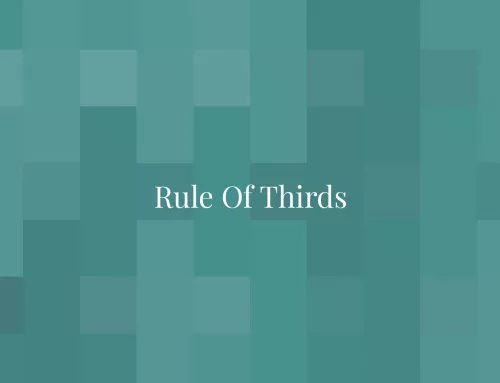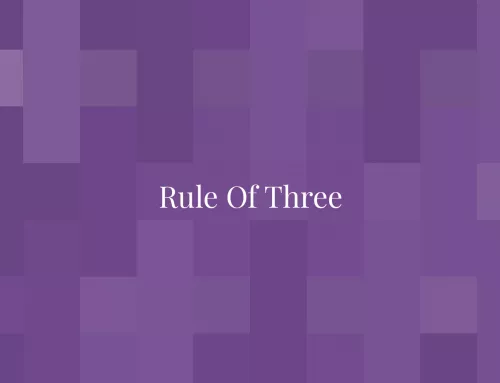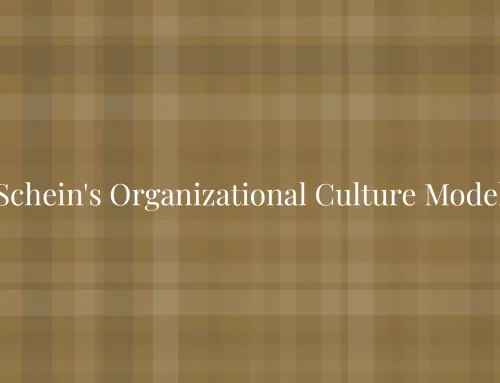Power tends to corrupt, and absolute power corrupts absolutely. Great men are almost always bad men. (Lord John Dalberg-Acton)
We can envision leadership as the ability to get other people to do the things that you want them to do. To influence others, leaders use different forms of power. Power is the ability to influence others to achieve objectives. Correspondingly, it can be deployed positively or negatively. Leaders and managers leverage power to influence others to achieve outcomes. In engagements, consultants should understand the distribution of power among the stakeholders. The kinds of power they wield depend on their personality, role, level in the organization, personal values, and company culture, etc. Power dynamics and distribution among client stakeholders tends to heavily influence their decisions, transactions, and engagement outcomes.
French and Raven Model
Social psychologists John French and Bertram Raven studied the varying types of power in the 1950s. Their research is more than half a century old; yet, their insights proves very valuable even today. Their power classification scheme helps consultants understand the power map among their client stakeholders. It also helps us understand why some people are more effective and skilled at influencing others. By utilizing the right type of power in the right situation, consultants can channel their recommendations to the right client stakeholders and help the client get the most value. French and Raven’s forms of power describes six sources of leadership power:
- Reward
- Coercive
- Legitimate
- Expert
- Referent, and
- Information
Each form of power has distinct characteristics, distinct requirements and different levels of effectiveness with different people. When used to influence someone, each form of power has a different impact on relationships and outcomes.
Reward Power
A leader who has the ability to reward an employee or team member in cash or in kind has reward power. Reward involves giving benefits to someone for doing something. This form is based our intrinsic inclination to do things well in exchange for something we value. Rewards generally only achieve compliance.
The reward power is largely based on subordinates’ perceived value of the reward. When the reward falls short a subordinate’s perceived value, that power is gone. Therefore, the rewards have to be bigger than the last time to have the same effect. When this happens, the recipients of rewards may start to consider rewards entitlements. This means that rewards are effective only to the point, beyond which the reward recipients have no ongoing incentive for compliance.
As a result, this form of power tends to diminish over time. Therefore, this form of power usually not as strong or unilateral as it appears on the surface. Bosses rarely have complete control over a salary increases. Likewise, managers usually can’t give a promotion to an employee entirely on their own. Even CEOs and C-suites typically require permission from their boards to make large decisions when it comes to salary increases or lay-offs.
Tips
As consultants, you need to understand your client stakeholders‘ personal constructs, what they value and their motivations. For example, if some of your stakeholders are parents with young children, schedule meetings and workshops during late mornings or early afternoons. This would allow them to drop off their children at school or pick them up from school without disrupting the flow of their work day. Such consideration will ensure their full participation. In exchange, they will also reward you with their time, knowledge, advice, feedback, information, and access that you need to effectively drive the engagement to a successful completion.
Similarly, you could consider coaching junior-level client stakeholders on strategy, analysis, soft-skills, etc. during an engagement. Make sure to embed them in critical engagement activities, so you expose them to your thinking process. Subsequently, they can sound your analysis with their superiors after your engagement and serve as your proxy in their organization. This will not only increase their stature in their organization, but also is an excellent relationship-building strategy.
Coercive Power
Coercive power is the opposite of reward power. A stakeholder that can punish others has coercive power. The threat of punishment can persuade or dissuade certain actions, sometimes with unintended consequences. The objective of coercion is achieving compliance. Coercion involves forcing someone to do something against their will. Coercion can only ever achieve compliance in others to a limited degree; it can never motivate people to deliver unprecedented performance or achieve excellence. Furthermore, it also usually causes resentment and if used too much will cause people to leave.
Tips
Consultants should be cognizant of this power form among client stakeholders. A large part of consulting entails close client interaction. Much of the inputs that consultants need to effectively deliver engagements are through formal and informal information exchanges. Depending on the organizational culture, stakeholders may freely share or withhold crucial information for the fear of retribution. Therefore, you should understand both, the power distribution and punitive actions that hamper interactions with your client stakeholders. So, watch out for such signals during your engagements. You may have to seek alternative information channels or approaches, such activities one-to-one sessions with key client stakeholders, off-site meetings, Gemba walk, anonymous surveys, etc.
Legitimate Power
This is traditional power. In Machiavellian terms, legitimate power is bestowed upon you. It is the type of formal authority or status, a stakeholder has due to his / her relative position in the organization. Because that person is the Vice President or CEO, they can call the shots and make decisions. One derives legitimate power from a position or a set of formal relationships. Leaders in a hierarchies and elected officials have legitimate power. Employees in an organization respond to legitimate power; they will do what they are told due to the rules of society and the workplace.
With each promotion you receive or advance you make, there is an increased level of responsibility, accountability and decision-making authority that comes with it. When leaders refuse to exercise this power, they frequently lose it altogether. Usually, legitimate authority is based on a role. When a person loses his / her position or title, they simultaneously lose this power. Hence, this is a weak lever to persuade other people. Organisations constantly restructure themselves to stay competitive and in the process, recast roles and accountabilities. A key stakeholder, who once wielded considerable legitimate power, may suddenly no longer possess it. Therefore, consultants should not solely rely on stakeholders with this form of power. Instead, they should consciously build rapport across the various levels in their client organizations’ hierarchies to both, build true client relationships and demonstrate their value.
Expert Power
Expert power derives from an individual’s expertise. Their level of skill, competence and experience helps make them trustworthy and able influential to others. One derives expert power purely from personal traits; it is wholly independent of a position in an organization. People who have more knowledge or experience than other members of their team exhibit expert power. For example, an executive with 20 years of experience in their field has expert power over a recent college graduate who is just starting their career. Expert power only lasts as long as an expert keeps getting good results and is not acting purely for personal gain. The great thing about this power is that no one can take it away from you. It’s knowledge that you hold.
However, in order to remain an expert and to keep your status and influence, you need to continue learning and improving. Expert Power also accumulates over time. There is almost no limit to the creative strategies you can employ to increase your base of relevant expertise. A significant component of expert power is being able to discern information worth knowing from irrelevant noise.
Tips
As consultants, we are in the knowledge business. Client stakeholders regard consultants as highly intelligent and trust their abilities to solve challenges for them. They expect their consultants to demonstrate expertise. Else, why would they pay high billing rates for your services? For example, a client may engage your firm to value a target for acquisition. Or, a client engages your firm to build specialised software. Correspondingly, you should be extremely knowledgeable on the subject and demonstrate your abilities to successfully deliver results.
But, building expertise is no easy feat! Research shows that it takes deliberate practice (at least 10, 000 hours) to excel at something[1] a.k.a the 10,000-hour rule. Building such expertise widely differs among individuals. Some require academic studies, while others need more practical experience. Despite these challenges, it is obligatory that consultants constantly acquire knowledge and specialization to be both, billable and valuable (relevant) to clients. Carve out a niche for yourself by seizing opportunities that come your way. Expand on those opportunities to build up knowledge and demonstrate expertise. Remember that building expertise alone is not enough. Your clients and peers should recognise your expertise and acknowledge the need for your specialisations. Hence, you need to engage in some self-marketing though publications, webinars, conference talks, etc., to both, showcase your expertise to your firm and your prospective clients.
Referent Power
This depends on personal traits and values, such as honesty, integrity, and trustworthiness. Referent power is in those people that have a presence about them and a strong track record. They often have people that want to follow them and their leadership. People with high referent power can highly influence anyone who admires and respects them.While all power bases are important, a strong base of referent power is essential for any effective leader. Celebrities have referent power. This is why when they endorse a product, go to a restaurant, or live in certain neighbourhoods.
In the workplace, employees often like their colleagues with referent power, which comes with a certain degree of influence. Referent power comes with a great deal of responsibility. Just because someone is well liked or has fame, does not mean that they are necessarily honest, trustworthy, or reliable. One usually earns referent power over a period of time, one transaction at a time. How long does it take for someone to earn your trust? Your respect? The answers will vary, but rarely are trust or respect earned overnight. Conversely, while referent power takes time to build, it can literally be lost in an instant.
To build may have to be the slow and laborious task of years. To destroy can be the thoughtless act of a single day. (Winston Churchill)
Information Power
One gains information power when they know something other people want to know. This information could be anything from gossip to intricate knowledge about a person or company. It is based on the ability to control the flow of information that is needed to get things done. Knowing who will be fired, what the financial reports say, how the executive team will respond to a recent crisis, or why HR has been so distant lately are all examples of informational power. It is often derived from having access to confidential information that others don’t know (information asymmetry).
Informational power can be very strong in our increasingly information and data driven world. However, once a source of information is lost, so is its associated power. This is a short-term power that doesn’t necessarily influence or build credibility. For example, a project manager may have all the information for a specific project, and that will give him / her informational power. But, it’s hard for that person to keep this power for long; eventually this information will be released. Hence, this power form should not be a long-term strategy. In today’s modern, technology economy, information is king. Having access to information — and the choice to share it freely or manipulate its content — has proven to be a very powerful power weapon.
Connection Power
This power creates influence by proxy; it is all about who you know. In this case, a person attains influence by gaining favor or simply acquaintance with a powerful person. This power is all about networking. In business, networking is key to making connections with decision makers and leaders who have influence. A leader with lots of connection power may have many connections or a large social network they can use to their advantage. Such persons may also be close to an executive with legitimate authority. Connection power is also the ability to connect people and ideas. People with a lot of connection power are often called power brokers. They feed off connecting people and ideas and often create a lot of value in this role. Such people build important coalitions with others; they can get things done or have access to decision makers when others do not.
Charismatic Power
Similarly, charismatic leaders have the ability to influence others. While they may or may not have an established network of contacts, they usually have a natural ability to persuade or inspire others. When people are charming, we want to go the extra mile for them.
Moral Power
A leader that exhibits ethical leadership and has been placed on a pedestal, so to speak, due to their beliefs and actions has moral power. A leader’s good qualities can lead to them having moral power over an employee, because the employee may be inspired to replicate the leader’s actions.
French and Raven’s Forms of Power are a good framework for considering power and influence in leaders, and more broadly in the world of consulting. A key thing for consultants to understand is that the forms of power is not associated purely with position. The positional powers of coercion, reward, legitimacy and information encourage people to reach a minimum level of delivery. But, they don’t really encourage people to take ownership of what they are doing and do more than the minimum. Consultants should keep this in mind when engaging with client stakeholders. The last thirty years witnessed a proliferation in research on charismatic, transformational and visionary leadership styles. Interestingly, charisma trumps the other leadership forms. Correspondingly, these leadership forms are collectively referred to as neo-charismatic leadership [2]. Nevertheless, the French and Raven models of power is helpful for consultants to become more effective in their client interactions.




